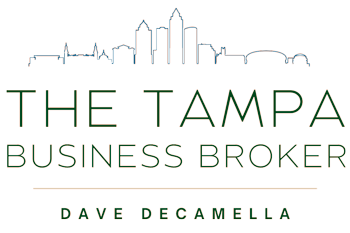Part II: Navigating Uncertainty When Selling Your Business
Maintaining confidentiality is of utmost importance when selling your business. Remember, loose lips can have dire consequences! This article on navigating uncertainty is the second installment in a three-part series on the significance of confidentiality. Confidentiality in the sale of a business includes:
- The fact that the business is for sale
- Financial data
- Intellectual capital
- Proprietary processes
- A myriad of other information that must be protected
In the first article of this series, I delved into the significance of timing. The narrower the timeframe between product launch and sale, the lower the likelihood of any potential leakage.
This second article involves navigating uncertainty in the selling process and what to disclose.
In the third article, we will discuss how to disclose the sale of your business correctly.
Let’s discuss the implications of managing uncertainty for others in the selling process.
Managing Uncertainty
Managing uncertainty among stakeholders is crucial because it elicits diverse responses when marketing a business for sale. Stakeholders, such as suppliers, employees, and customers, maintain existing relationships with the business owner. These connections can undergo significant transformations during the sales process. Therefore, effectively navigating uncertainty is essential to ensure a smooth transition and maintain positive stakeholder engagement.
A Few Examples:
- Customers expect a certain level of quality from the business, but there is no guarantee that they can expect to receive the same level of quality once the business sold. Loss of sales can damage both the business and the sale price.
- Suppliers can introduce varying terms that have the potential to impact operations and accounting.
- Employees may understandably have concerns about their job security, leading to a potential decrease in productivity and the possibility of employees seeking other job opportunities.
Dealing with uncertainties among stakeholders like customers, suppliers, and employees can significantly impact a business sale and requires effective management.
Non-Disclosure Agreement
To effectively manage stakeholder uncertainty, prioritizing confidentiality is crucial. One valuable tool in achieving this is a Non-Disclosure Agreement (NDA). It is imperative to always use and enforce NDAs. Among its benefits, an NDA prevents buyers from sharing sensitive information with stakeholders like customers, suppliers, employees, and competitors. By requiring and enforcing NDAs, sellers enable buyers to access the necessary information for informed decision-making while ensuring that the sale remains undisclosed to third parties. Business intermediaries, who understand the importance of confidentiality and its potential impacts, can provide guidance on implementing confidentiality measures like NDAs and determining what information to disclose in other selling documents.
What details need to be disclosed?
Now, let’s talk about how you can manage uncertainty during the selling process, particularly when it comes to disclosing information. It’s common for business sellers to unintentionally provide warranties and indemnities to the buyer.
- Warranties are typically factual statements made by the company. If the seller provides false information, whether intentionally or due to a misunderstanding, it could result in a breach of warranty. This breach could potentially expose the seller to claims for damages from the buyer, even after the business has been sold.
- Indemnities are commitments to compensate the buyer in the event of specific occurrences that result in a loss for the buyer.
Including warranties and/or indemnities in the sale agreement provides the buyer with insights into the current state of the business and offers a level of protection. However, it’s worth noting that the inclusion of warranties and indemnities often leads to a higher sale price. Safeguarding against liability and effectively managing the sale price are compelling reasons to rely on the expertise of a seasoned business intermediary.
Use a Certified Business Intermediary (CBI)
In addition to various other services, a certified business intermediary (CBI) can help you create a tailored disclosure letter that meets your requirements and safeguards you as the seller. When preparing the disclosure letter, the CBI can offer guidance on:
- Whether warranties, indemnities or both are most appropriate,
- Whether specific clauses and exceptions to warranties and indemnities are needed,
- What should be included such as a statement that the company’s assets reach a certain value
- Limits to place on the sellers’ liability.
The disclosure letter may be part of the sales agreement or the buyer’s letter of intent. Your CBI, as they get to know you and your business, will provide advice on the content and management of uncertainty through NDAs. When done right, the disclosure letter and NDA are key for protecting your confidential data. Your CBI plays a vital role in applying these tools and navigating uncertainties during the sales journey. The Tampa Business Broker, Dave DeCamella offers almost a decade of experience and expertise to help guide you through both the buying and selling process.
There is no question there are a lot of moving parts when selling a business; and confidentiality is one of the most critical factors.
Read Part 1: Ensuring Confidentiality When Selling Your Business and to strategize your exit from your own business, contact Dave DeCamella.

